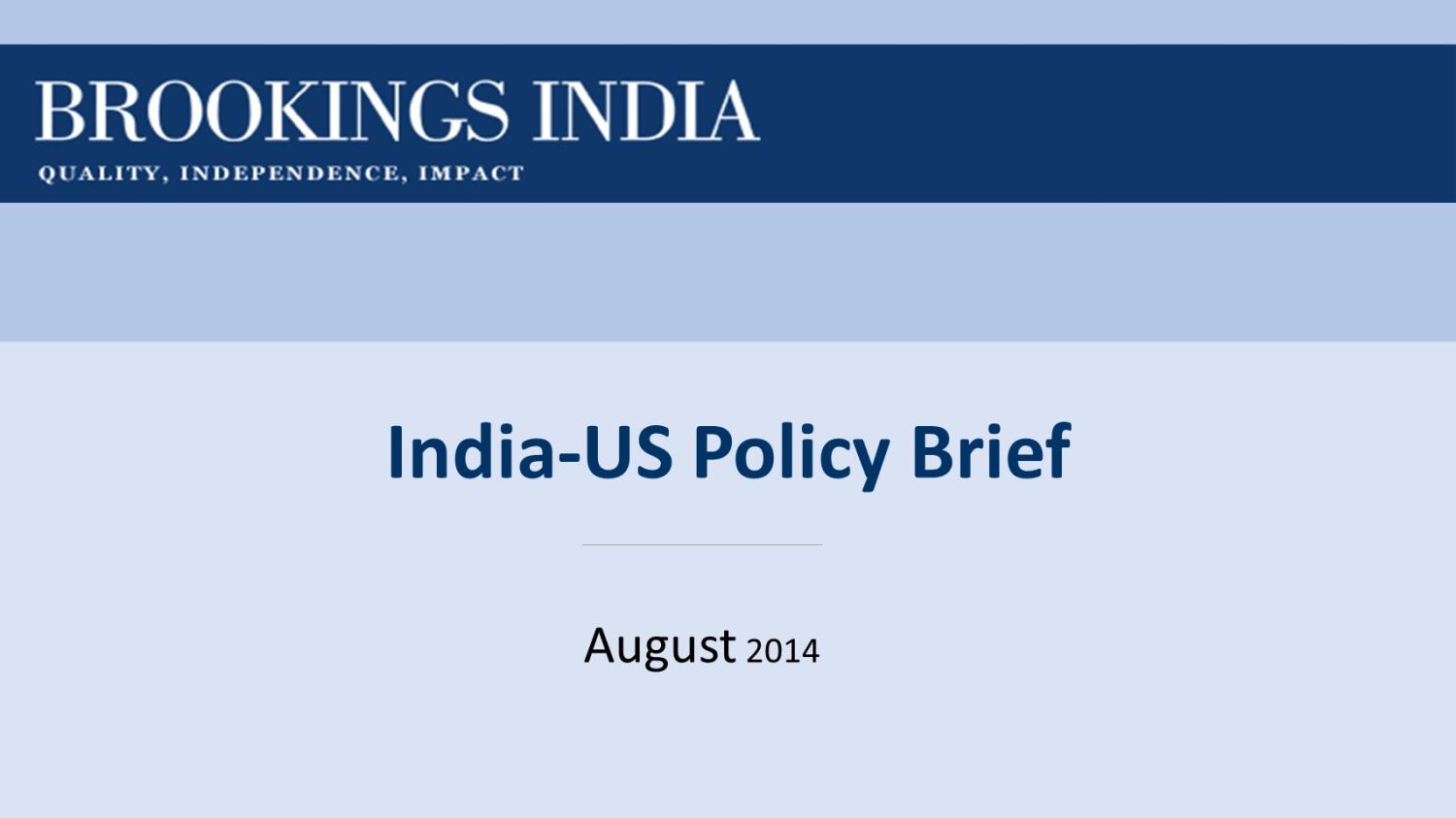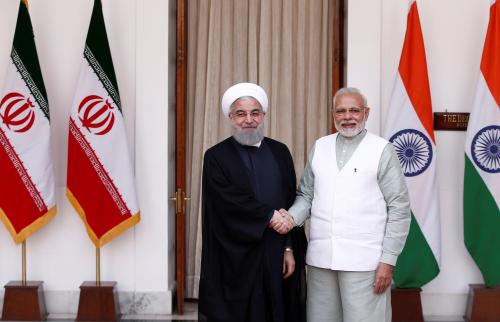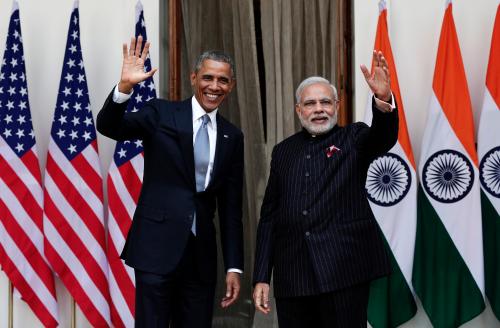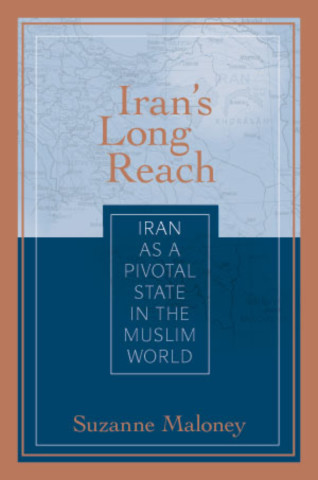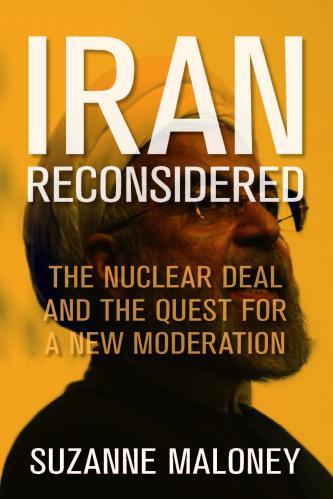Content from the Brookings Institution India Center is now archived. After seven years of an impactful partnership, as of September 11, 2020, Brookings India is now the Centre for Social and Economic Progress, an independent public policy institution based in India.
In this India-U.S. Policy Memo, Suzanne Maloney assesses current American policy toward Iran and the state of the nuclear talks with Iran. She also considers the implications for India and suggests that it is well-positioned to help shape Iran’s near-term options and approach.
American policy toward Iran today is caught in a state of historic uncertainty. A year after Iran’s election of a more moderate president reinvigorated negotiations over its disputed nuclear program, Tehran and six world powers failed to reach an agreement by the July 2014 deadline. Although the negotiations have been extended for an additional four months, the inability of the two sides to achieve a basic understanding on the parameters for a final deal raises doubts about the viability of a diplomatic resolution to the protracted nuclear impasse. And with an array of conflicts metastasizing across the region, the prospects for renewed frictions between the two old adversaries have unfortunately increased.
The nuclear talks remain at the top of the American agenda on Iran. The negotiations appeared to gain momentum after the November 2013 interim accord that froze key aspects of Iran’s nuclear program in exchange for modest sanctions relief. However, progress toward a more comprehensive accord has been stymied by the considerable differences between the two sides on the same issue that has confounded diplomacy for more than a decade—defining Iran’s capacity to enrich uranium.
Like other seemingly intractable conflicts, the basic formula for resolving the Iranian nuclear deal is already understood: Tehran must undertake meaningful constraints on its nuclear activities, including enrichment, and the West must accept Iran’s civil nuclear energy program and rescind the sanctions that have slashed Iran’s oil exports and severed its connections to the international financial system.
Washington and its international partners have endorsed these reciprocal tradeoffs, with President Obama putting his own credibility on the line with a very skeptical Congress and even more unsettled allies. However, Tehran’s bargaining position to date and recent statements from Iranian leaders raise serious doubts about whether the Islamic Republic can relinquish its own maximalist ambitions and demonstrate the political will to make the necessary compromises. Amidst widening regional violence and instability, Tehran may view the risks of concessions to the West as too dangerous, and the opportunities to consolidate and extend its influence in the heart of the Middle East as too tempting.
Iran’s alternatives to a deal remain profoundly unattractive. The six-month negotiating period has proven the resilience of the sanctions regime; even the modest openings permitted under the interim accord generated little new revenue for Tehran. In the absence of a resolution, Iran will continue to face constraints on repatriating hard currency receipts of any ongoing oil exports, leaving its economy reliant on barter trade and smuggling. In addition, without a comprehensive deal in November, intensified sanctions are an inevitability. Proposed legislation circulating in the U.S. Congress would intensify pressure on Iran’s continuing crude exports, with the objective of imposing a nearly wholesale embargo.
Implications for India
In many respects, the future of India’s relationship with Iran hinges on the outcome of the next four months: If a deal can be struck and the regional environment calmed, then the international sanctions regime will begin a slow, staged process of unwinding. This would advantage Iran’s existing trade partners, including India, in mitigating current obstacles and points of friction, as European and other international firms will move carefully in a still-uncertain regulatory environment. Iranian crude output is likely to rebound quickly in such a scenario.
However, should a nuclear agreement continue to prove elusive, India is likely to find itself once again caught in an intensifying U.S.-Iranian conflict. New sanctions would put Delhi in the crosshairs of likely American efforts to further winnow Iran’s oil revenues as a means of forcing concessions. This would not only create a serious supply disruption for India, but also provoke price escalation that would have negatives consequences for the country’s budget and growth prospects.
In addition, without some relief from the nuclear siege, it is unclear when or whether Tehran will have resources available for major capital projects of interest to India, such as the Chabahar port. Finally, although the Obama administration clearly prefers a diplomatic resolution to military action, a protracted collapse of negotiations would raise the specter of a U.S. and/or Israeli strike against Iran’s nuclear facilities, a move that could inflame an already tense and sectarian environment throughout the region and among Muslims elsewhere, including in India.
In either case, Indian policymakers should also remain attuned to Iran’s domestic environment, where continuing efforts to reduce import dependency as a means of mitigating the impact of sanctions will create new complications for the trade relationship. Tehran has recently increased customs duties and raised minimum quality standards for a number of important trade products, including basmati rice. There are inherent limitations on Iran’s ability to complicate trade with its remaining interlocutors, but populism has a strong constituency in the Islamic Republic.
India is well-positioned to help shape Iran’s near-term options and approach. Quiet interventions may be able to dispel Tehran’s remaining illusions that the country can somehow achieve its desired status as a stable, prosperous regional power without access to the international financial system. Given India’s importance to Iran’s energy exports and its standing as a regional superpower, Delhi can reinforce the direct relationship between Iran’s nuclear rehabilitation and its diplomatic and economic opportunities.
